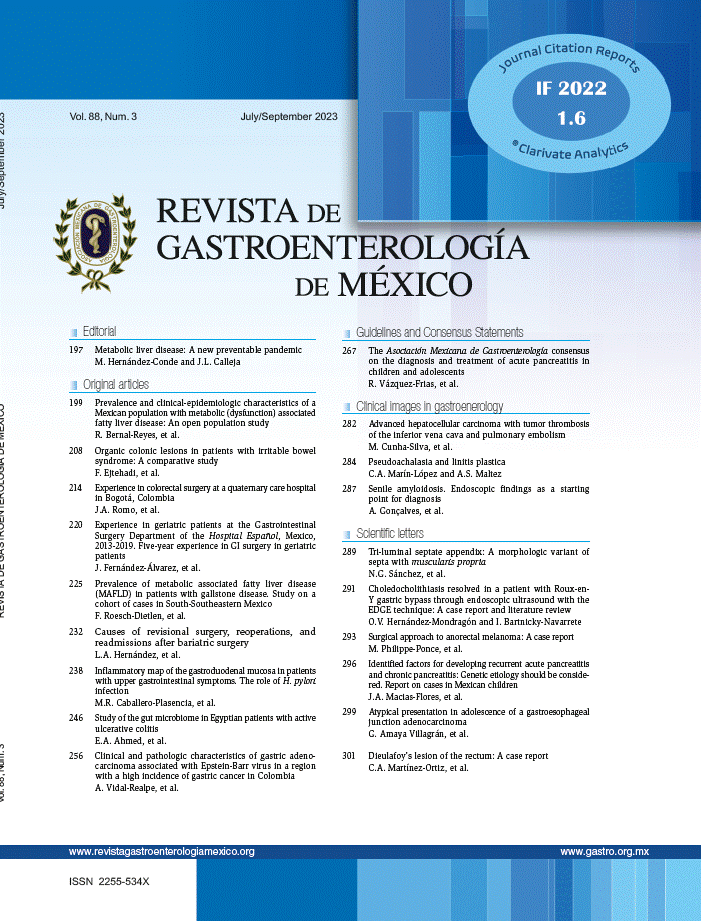We appreciate that Dr. Castrillón-Lozano et al.1 highlighted our article on fecal microbiota transplantation (FMT) results through colonoscopy in the treatment of recurrent Clostridioides difficile (rCDI).2 Without a doubt, their observations enrich the critical analysis of the role of TMF as a therapeutic strategy in rCDI.
Regarding the statistical analysis, we agree with the view that the Shapiro-Wilk test is more powerful and exact than the Kolmogorov-Smirnov test, especially if a sample has < 50 individuals,3 which was a recognized and stated limitation of our study.2 The suggestion to delve deeper into the sampling and selection criteria are aspects we shall consider in future studies.
Concerning the clinical success definition of FMT, we utilized the absence of recurrence at 8 weeks after the procedure because it is one of the criteria utilized in the literature for evaluating the effectiveness of therapeutic FMT in CDI management,4 and thus allows results between different studies to be compared. Nevertheless, we agree that broader definitions, such as those proposed by Gupta et al.5 would enable a more complete and exact characterization of the therapeutic response to FMT. On the other hand, Castrillón-Lozano et al. commented that the polymerase chain reaction technique for toxins A and B could be considered a post-management control in FMT. However, the performance of stool exams for controlling CDI cure is not recommended in the literature because those tests may remain toxin-positive after treatment.6
We consider the need to include different scenarios in which FMT may be an effective strategy in managing CDI, as occurs in immunocompromised patients,7 to be a very relevant observation. In our case series, the number of cases of such patients was limited, hindering the performance of conclusive sub-analyses. Nevertheless, we completely agree about the relevance of that group of patients, considering their greater clinical vulnerability. It is important to point out that, even though FMT use in immunocompromised patients is historically approached with caution, recent studies have shown its safety and efficacy in that population, with no significant increase in severe adverse events.8 This evidence reinforces the need to develop focused research and specific guidelines for immunocompromised patients.
Lastly, we sincerely appreciate the words of recognition, in response to our study, and we fully agree about the need to generate collaborative, multicenter evidence, to strengthen the clinical recommendations regarding FMT use in rCDI.
Financial disclosureNo financial support was received in relation to this article.
The authors declare that there is no conflict of interest.



